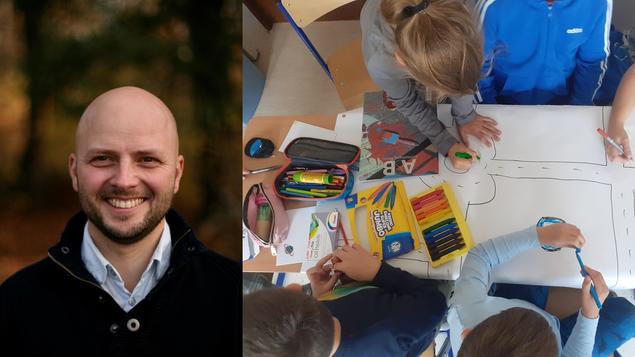New project: Can we make the school commute greener?

How can we make it easier for families to bring their kids to school in an environmentally friendly way? This is the core question Pål Wilter Skedsmo and his international colleagues ask in a new EEA-financed research project, Co-designing Inclusive Mobility.
‘In this transdisciplinary international research project we analyse attitudes, behaviours and options related to mobility, with a focus on alternatives to the use of private cars’, Skedsmo explains.
In cooperation with three Warsaw elementary schools and local authorities, the researcher team will seek to identify barriers to and opportunities for various transportation choices.
‘We hope to find solutions that can lead to systematic change for families. What can induce them to choose more environmentally friendly school commute options than using private cars?’, he asks.
The project consortium has been granted €2 million from EEA Grants. Skedsmo’s research will benefit from his previous research on public participation in environmental politics in post-socialist countries, now adapted to a new topic.
‘My job will be to identify success stories and explore the role of private car ownership versus sharing-economy options for mobility’, he adds.
The project is part of the research call ‘Cities for the future: services and solutions’, where researchers were invited to an ‘idea lab’, to discuss and explore ideas together with potential new partners. The best ideas to emerge from the idea lab were recommended for funding, and then developed into full research proposals. Skedsmo’s concept was part of one of the winning proposals.
‘The idea behind the idea lab was to gather people interested in the same topic, who could then form new partnerships. In this project, I’ll be working together with machine-learning experts, people who do traffic modelling, air-quality researchers and researchers from various social sciences.’
In addition to modelling traffic data, the researchers have installed air-quality controls in the streets around the schools, and will also assessing the choices local families make when it comes to mobility.
As an anthropologist, Skedsmo will concentrate on the values of the families. How important are private property rights in Warsaw, he asks – noting that such values may vary among post-soviet and other European countries, and thus influence the uptake of sharing-economy opportunities.
‘Freedom, individualism, and ownership are all central values that may create barriers to collective mobility choices’, says Skedsmo, who will collect success stories from other European countries to share with the Warsaw team. ‘In the project, we will organize urban living labs. Co-creation and participation from the families and schools will be pivotal here’, he concludes.
Partners: University of Warsaw (UW), Warsaw University of Technology (WUT), Warsaw School of Economics (SGH), Norwegian Institute for Air Research (NILU), On-site Foundation (NGO), the City of Lublin, City of Warsaw, the Association of Polish Cities.
